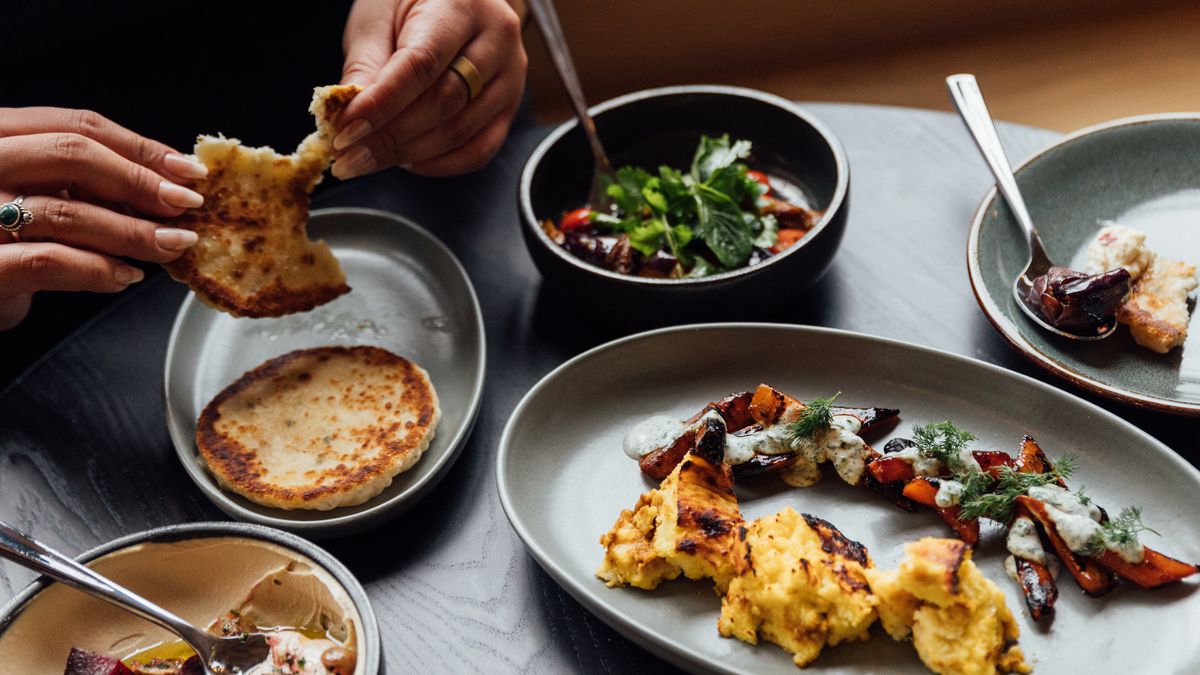Erling Wu-Bower points out the speakers hanging from the ceiling and the space behind the bar where the turntable will spin soul and funk at his upcoming restaurant.
Maxwells Trading will soon to open west of Ogden Avenue, an area once cast under the shadow of the Schwartz Pickle Factory. It’s technically the West Loop, but the stretch remains a mix of industrial and gallery space in an area much quieter than the land of taco chains and real estate chatter along Randolph Street.
The restaurant, named for Wu-Bower’s 8-year-old son, is a hulking project with two floors, with a concrete bar on the first-floor and a wood-burning grill. Wu-Bower hopes the design retains some of the art gallery history of the area and it will even house a pop-up space where Paper or Plastic will sell vintage books and records. Folks will also be able to pick up a coffee or latte. Private events are planned for the second floor where there’s an outdoor space for parties. Wu-Bower, along with business partner Josh Tilden, opened Pacific Standard Time Together, and have been friends for years.
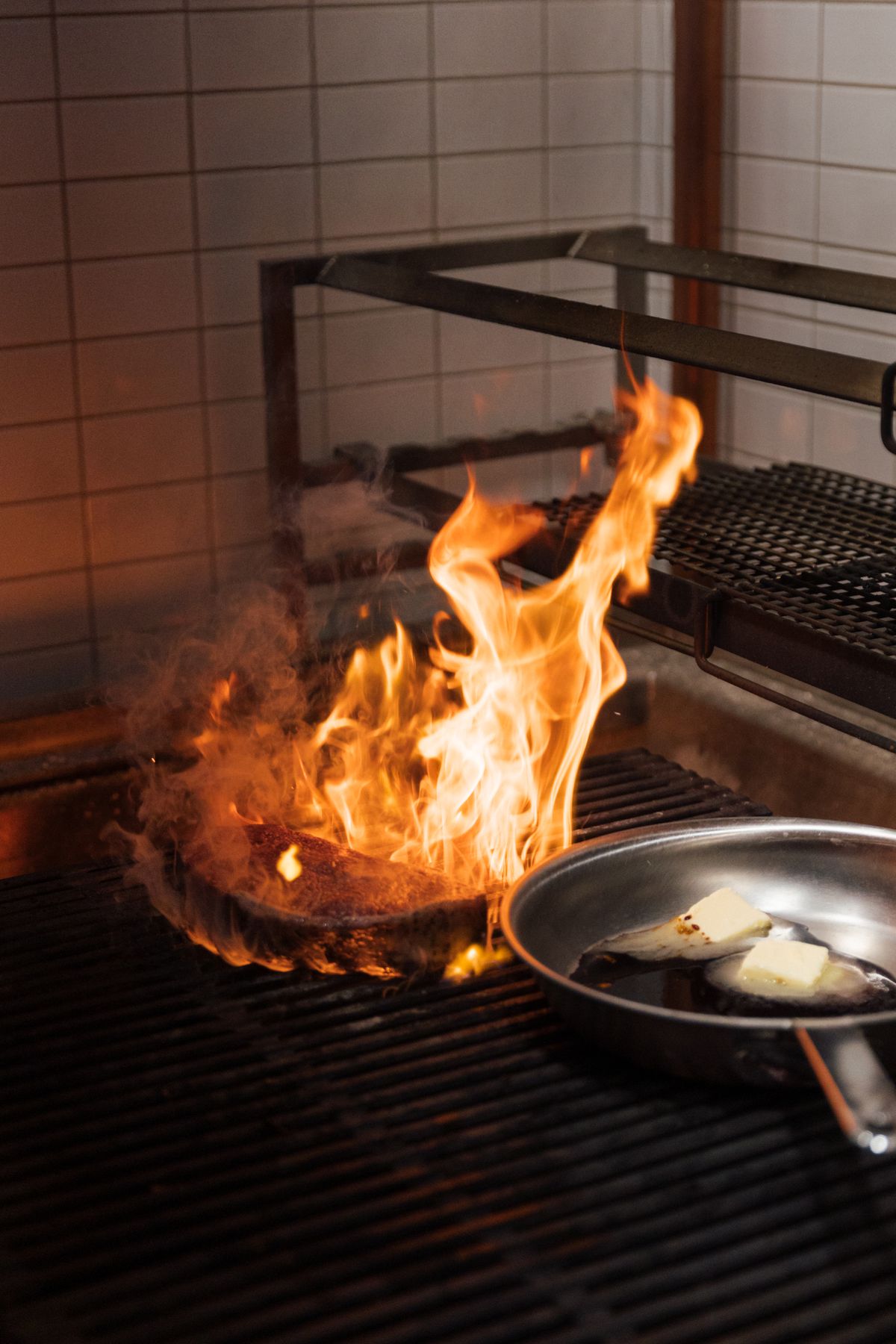
“The story here is that Josh and I wanted to open up a restaurant that Josh and I could bring our wives,” Wu-Bower says. “To have great food, listen to great music, and have great cocktails. This is that restaurant. We built this restaurant for the audience of us, which is unique for us.”
The restaurant is a collaboration between Underscore and The Roof Crop, started in 2013 by Tracy Boychuk which also owns the building. It’s gone through a drastic remodel and is about 90 percent complete. The organization aims to is mitigate climate change getting urban stakeholders involved; they manage several beehives around the city. They will have one on the roof where the restaurant can source its honey.
Wu-Bower has huge hopes deploying the Roof Crops not-for-profit foundation and partnering with Chicago Public Schools to show city students the three greenhouses on the roof and iterate the importance of urban farming. Wu-Bower is demonstrative in iterating the benefits of herbs clipped that same day and used in cooking. An herbal tea garden will add to the options, though they’ll source caffeinated teas elsewhere.
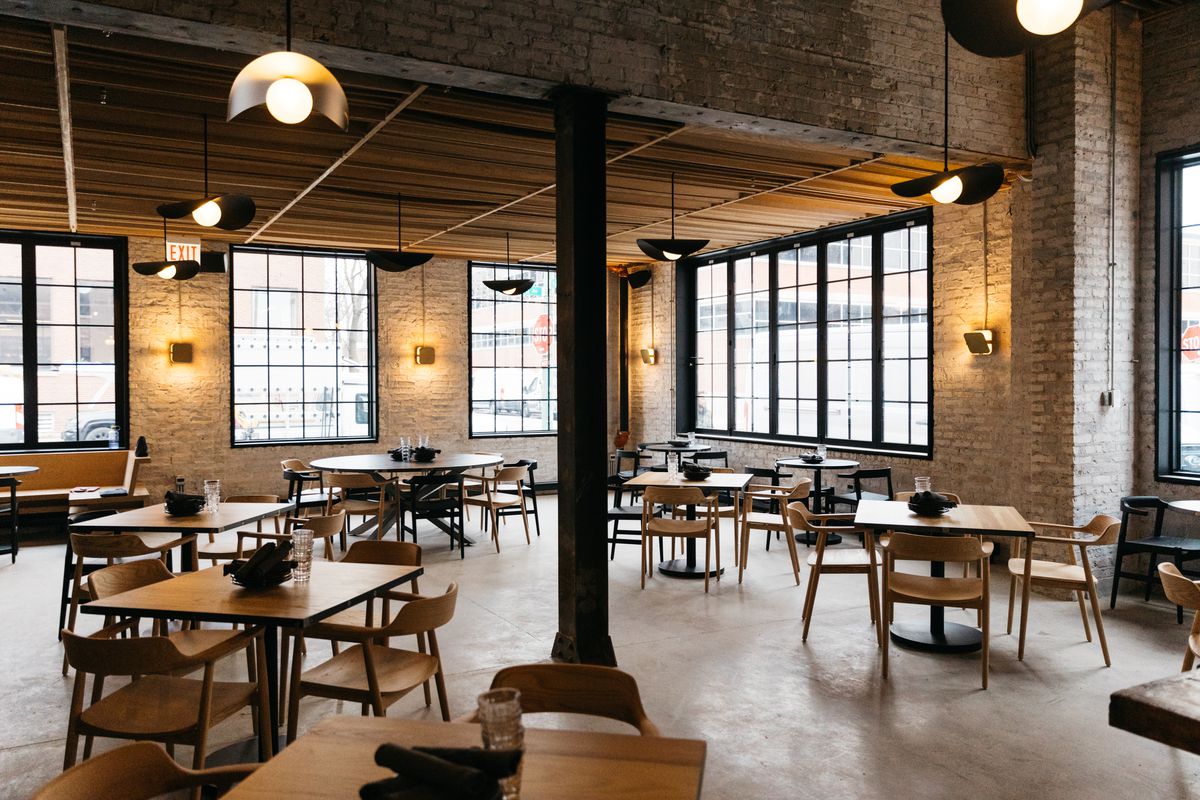
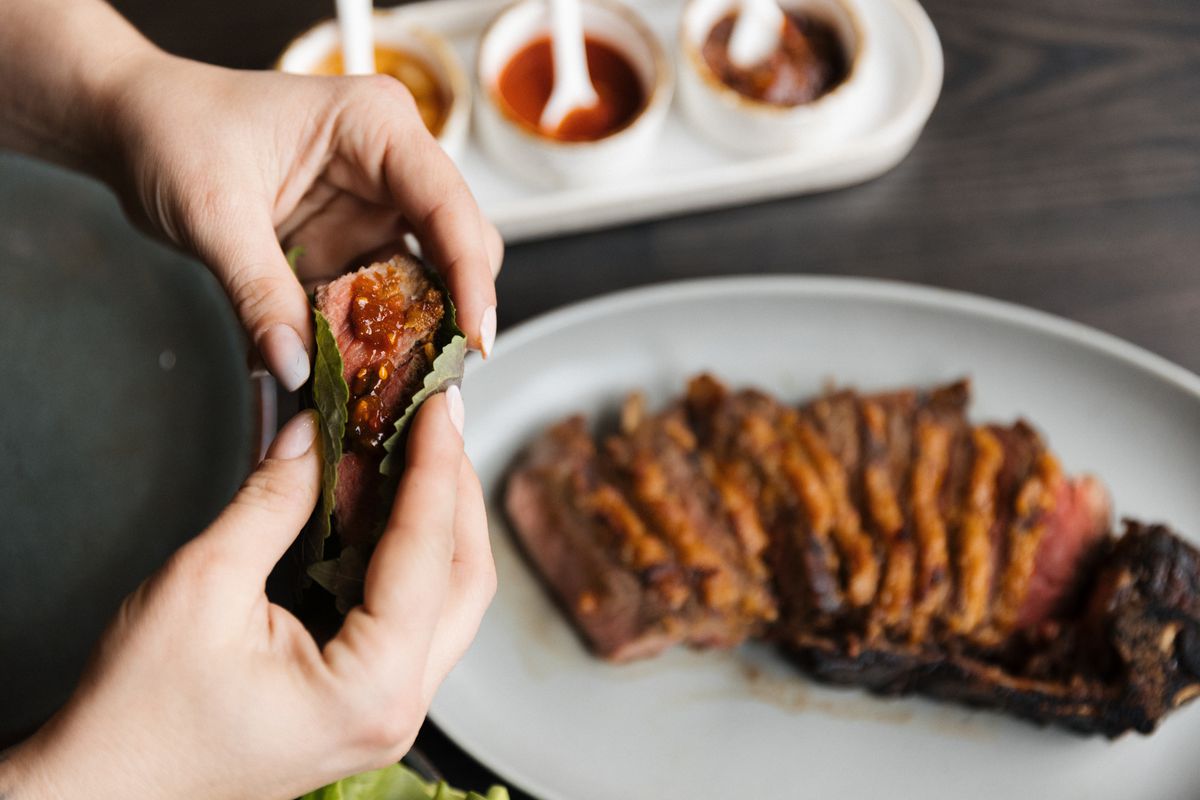
Maxwells Trading is a tribute to the iconic Asian neighborhoods that helped mold him including Chinatown and Uptown, where Asia on Argyle — home to Vietnamese, Chinese, and Thai restaurants — continues to evolve. In the kitchen, he’s joined by Chris Jung, formerly of Momotaro. The two know each from the Pacific Standard Time days, where Wu-Bower and Tilden sought to leave their mark with their new company, Underscore Hospitality. They collaborated with Publican-famous One Off Hospitality Group, but the pairing didn’t work out, and Underscore left the River North project in 2020.
During the pandemic, Tilden and Wu-Bower, a decorated chef with multiple James Beard Award nominations for this work at Nico Osteria, an Italian seafood restaurant off of Rush Street, plotted their return. Maxwells Trading is that calling. But Wu-Bower’s voice isn’t the only one in the kitchen. Jung was born in South Korea and grew up in America. He’s also cooked in Japan. As Uptown is important to Wu-Bower, Jung claims New York’s vivacious Chinese community in Flushing, Queens where his family would take him while growing up in New Jersey.
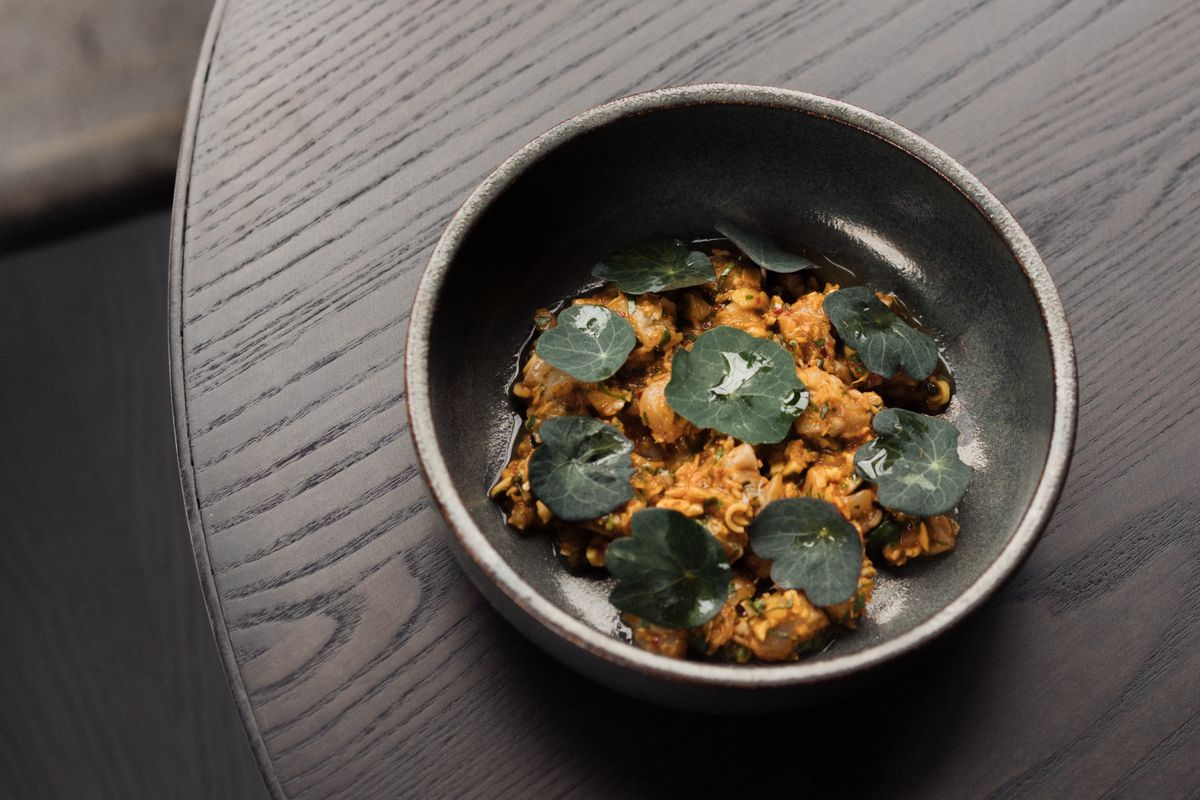
“it’s not even forcing ourselves to do that exploration,” Wu-Bower says, adding that as he grows older, he’s more fascinated with those immigrant enclaves versus restaurants only chasing Michelin stars. “That’s where we want to be.”
Creative tension is welcomed by Wu-Bower, a chef who studied philosophy. Tilden is used to reeing the chef in, and Jung has no problem with telling his boss that he’s wrong. For example in many Asian households, rice is an important subject. Wu-Bower, who has cajun and Chinese roots, says that jasmine rice was the only permitable option at home. There’s a dish on Maxwells’ menu, clay pot rice — with pork belly, lapcheong, shiitake, yuba, and kale — that used jasmine. However, Jung felt something was off and swapped in Japanese sushi rice. Despite being raised that jasmine rice was the answer, Wu-Bower knew his colleague was on to something: “It’s the flavors of Cantonese-style braises but using Japanese technique,” Jung says.
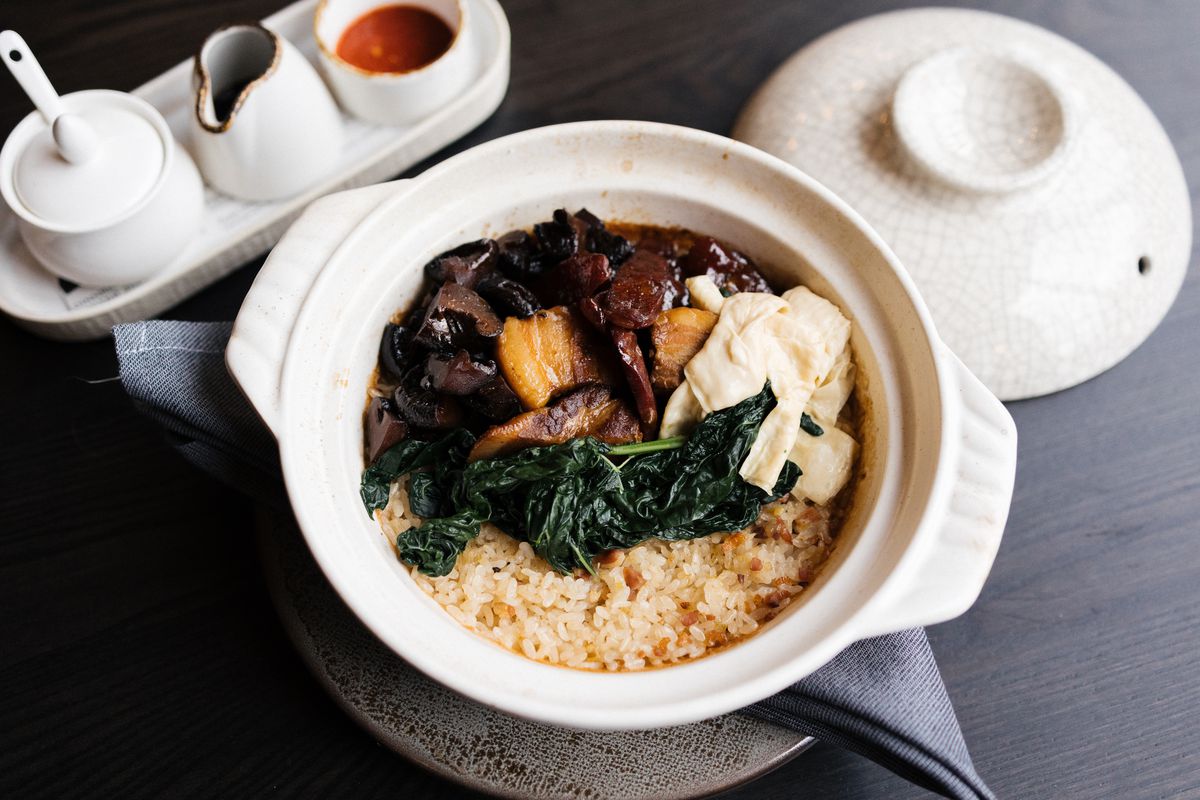
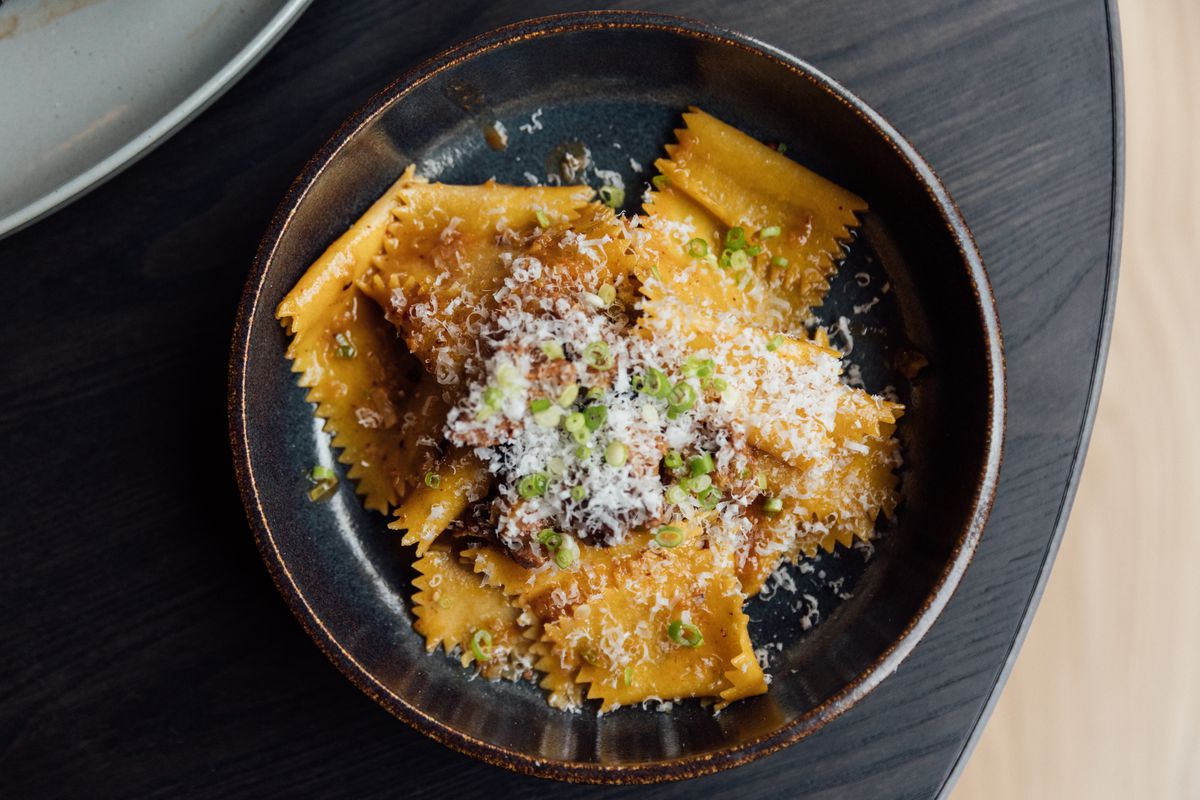
The menu follows a kind of Mediterranean-style sharing form in sharing hot and fresh bread. Which means there’s a section devoed to dips — Wu-Bower calls that section “Griddle Bread & Dunks.” The griddle bread is a cross between a Chinese scallion pancake with dried scallions imbued into a South Asian naan that’s naturally leavend.
“You know, every cook can go to the Asian pantry,” Wu-Bower says. “Ginger, scallion, garlic — right? Sesame oil, and then marinate meat. And it’s great, but when we’re not honest to a specific culture, we’re going to say it.”
The drink list, from beverage manager Kristina Magro, also follows that direction. Martinis, which Magro says are “decevingly complex” will star: “The menu is a beautiful collision of cultures while still respecting the dish’s origins,” Magro says. “I am not reinventing the wheel by any means, but it’s my interpretation of the classics.”
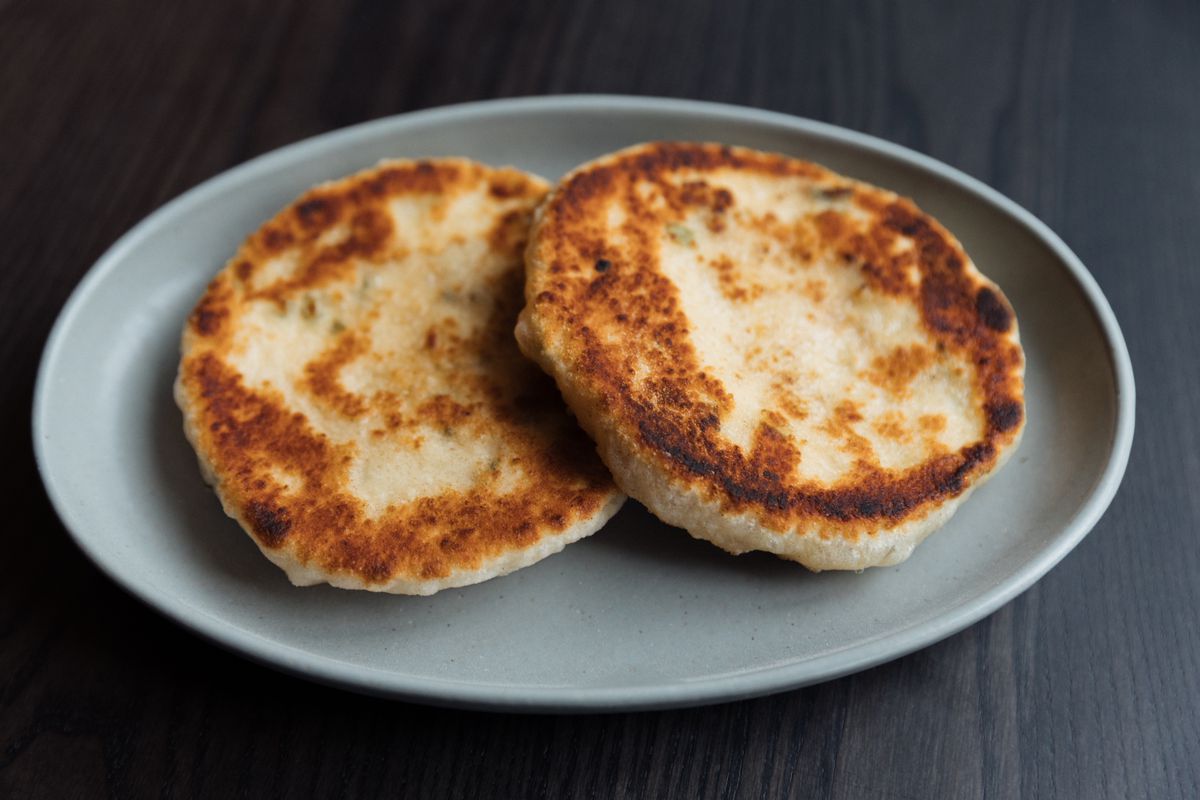
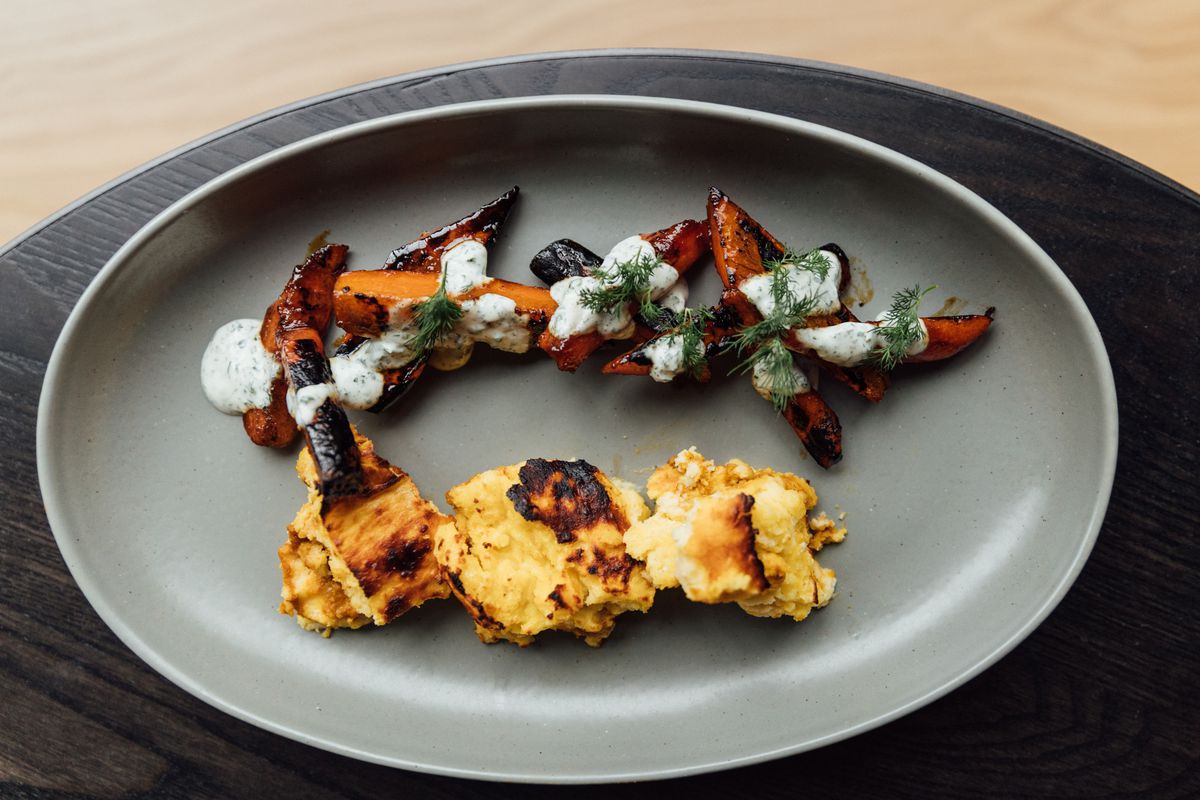
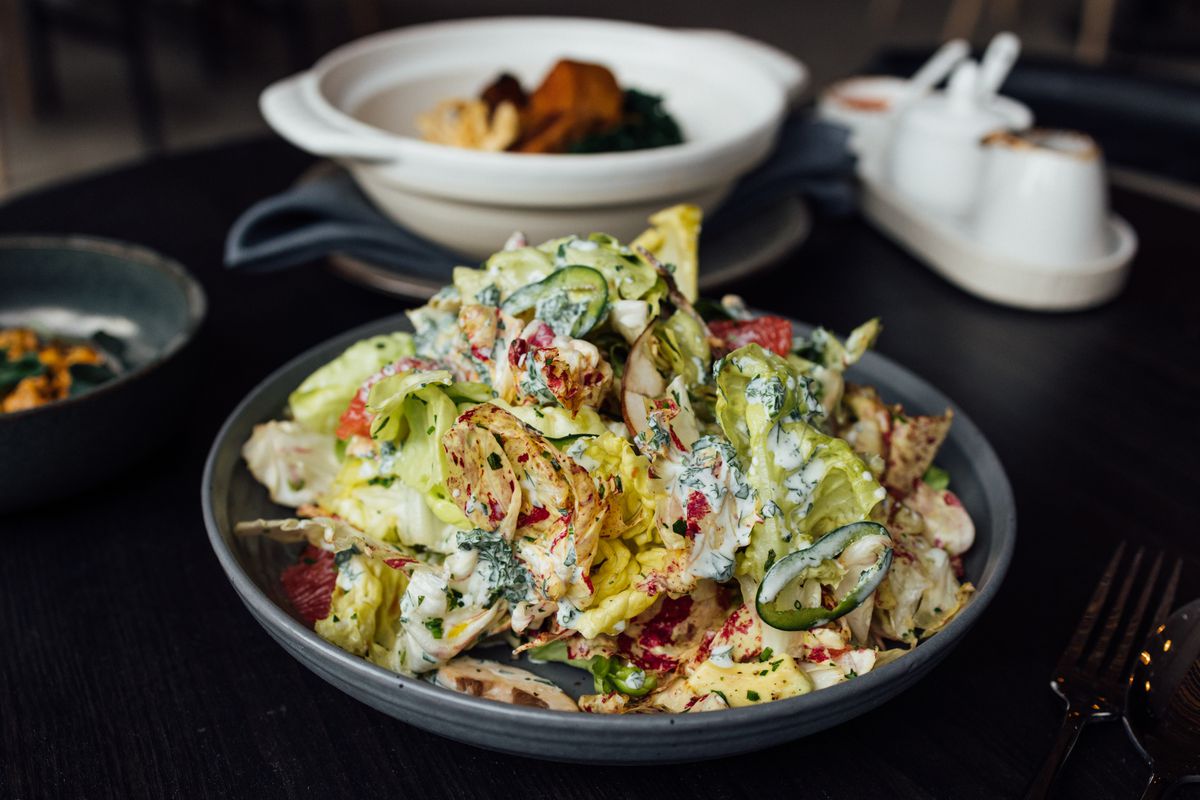
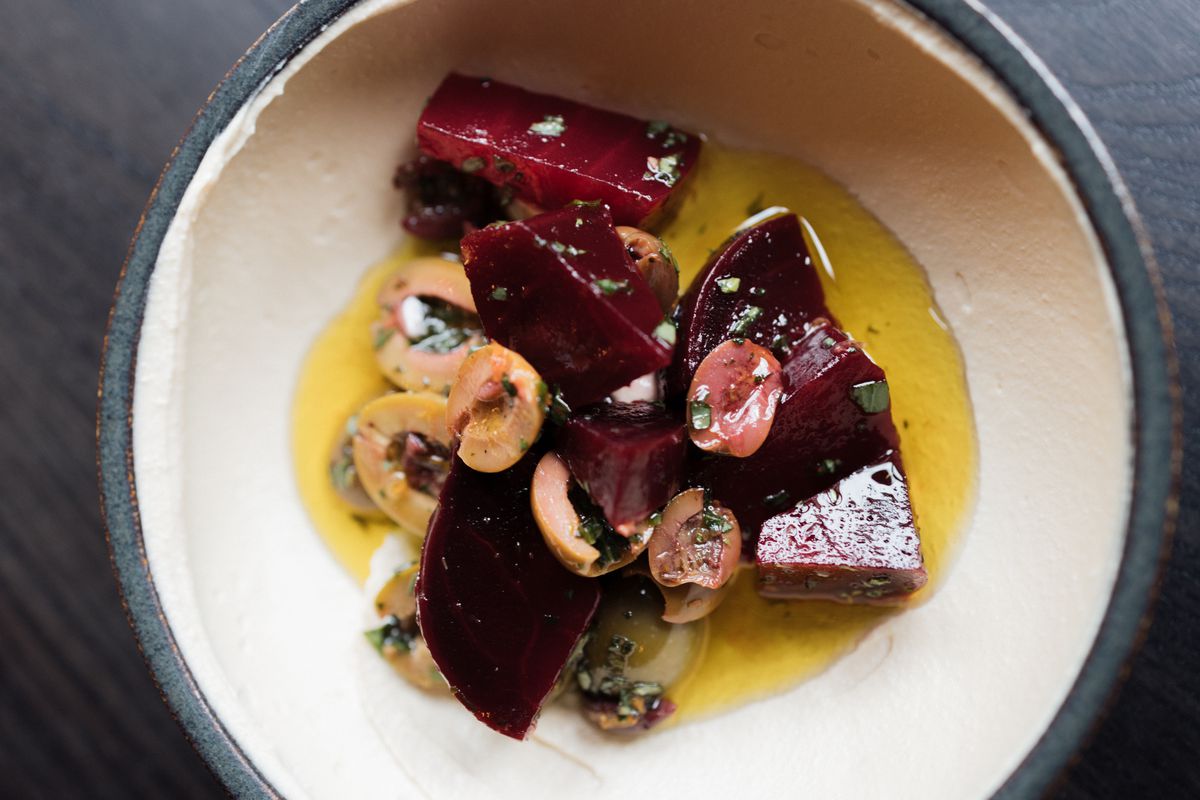
Jung and Wu-Bower trust each other, which make Wu-Bower confident in saying that he may never even work the line. He may try to see the restaurant world from management side, coming into work wearing a suit instead of an apron. But that’s a choice.
“I can still get back there and throw some elbows like — let’s be very clear,” he says.
Check out the food menu below.
Maxwells Trading, 1516 W. Carroll Avenue, opening in soon.
